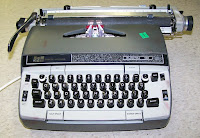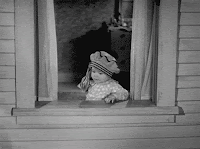I warned you there won’t be a post on Thursday. It’s my birthday, and there’s a good chance I’m going to be filthy drunk, playing with little toy soldiers, or maybe getting a new tattoo. Possibly some combination of these things.
But I figured, what the hell, I’d like to talk about something else. This’ll be one of those little rants that’s less about writing and more about being a writer. And it’s a topic you may have heard of before.
There’s a concept that comes up now and then—the starving artist. If you look at the history of writing throughout the 18th and 19th Century, and even the start of the 20th, you’ll see a common thread. Most writers were hungry. Literally. They often couldn’t afford food. They usually lived in crappy apartments. Even the ones living “glamorously” in the ’20s and ‘30s were usually… well, living like crap.
People point this out and use it for all sorts of excuses. They think this proves artists don’t need to get paid. If you were a real writer, you’d just be doing it for the joy and the excitement of creating stories. You need to starve if you want to be any good at this, so just stop your whining and suffer! It’s not like writing’s a real job anyway.
This is all nonsense, of course. Every bit of it. But, as I’ve brought up here before many times, it’s easy to just say “that’s wrong.” The harder thing is to explain why something is wrong.
So let’s talk about the four basic flaws people make with the “starving artist” argument.
 First, they think this is something “real” artists did. They decided to throw themselves into poverty and live on bread crusts and cheap wine while they perfected their craft. It’s what everyone did back then, and it worked for them.
First, they think this is something “real” artists did. They decided to throw themselves into poverty and live on bread crusts and cheap wine while they perfected their craft. It’s what everyone did back then, and it worked for them.
Okay, let’s pick this apart.
Yes, back in the day… you had to starve for your art. Not because it built character, not so you’d understand suffering, none of that nonsense. I’d be a starving artist because… that’s how I’d learn. I’d work less or take time off altogether, and I’d just write. Write, write, write. Because, again, that’s how I’d learn. There weren’t classes or programs or books or degrees. No, seriously, there weren’t. That’s a really recent thing (and a rant all in itself). If you wanted to be a writer—a good writer–you learned by writing.
And that meant spending time writing. Which meant… not working on other things. Like maybe a high-paying job. Or any kind of job.
Plus, keep in mind—being a writer back then also meant a serious investment in money. How much do you think these folks wrote a week? 15,000 words? 20,000? That’s a ream of paper every month. Yes, paper. How else do you think they wrote back then? If I had a typewriter—assuming I could fix it myself and didn’t need to pay for maintenance—I’d still need to buy a new ribbon every 200 pages or so (or re-ink the old one, which means buying ink). Plus there’s postage, too (have to submit my work somehow).
Of course, all this skips over the real issue. Does anyone really think those aspiring writers wanted to live in poverty? If they could live in the modern world where everyone has a computer with a word processor, email submissions are the norm, and you can spend four or six or eight years at a university (with housing and a dining commons and medical services)… well, I feel pretty safe thinking very few of those writers of yesteryear would say “Nope—squalor and starvation for me, please.”
 Second, when people talk about the starving writer, they romanticize it. We hear stories about Hemingway, Fitzgerald, Stein, and so many others hanging out in Paris and we think, oh, how lovely that must’ve been. All the creativity and support and free exchange of ideas.
Second, when people talk about the starving writer, they romanticize it. We hear stories about Hemingway, Fitzgerald, Stein, and so many others hanging out in Paris and we think, oh, how lovely that must’ve been. All the creativity and support and free exchange of ideas.
Truth is… Hemingway was using alcoholism to deal with his PTSD after World War One. Fitzgerald had constant money problems. Hell, a bunch of them were skirting poverty at any given time. Oh, and let’s not forget the Nazis were gaining power in Europe at that point, so that may have caused a bit of tension among the progressive free-thinkers.
Things were really awful for those very notable starving writers at what’s considered a major point in their careers. But we overlook a lot of the negatives because of those positives. We maybe even enhance the positives a bit more than we should.
F’r example, right after college I lived in a shabby, beetle-infested, un-insulated townhouse in Amherst with three friends. We roasted in the summer, froze in the winter, and fought over the single shower every morning. We had a pretty-much absentee landlord who never fixed anything and stole our security deposit in the end just because we were young and she could.
I have tons of happy memories about that year. But I also know that’s my brain mercifully editing out all the horrible stuff. You’ve probably had points in your life like that, too—a job or a living arrangement or a relationship you can look back at fondly if you just ignore points A, B, C, and E. And we do ignore these things, because I think most of us like to focus on the positive. But it doesn’t mean the negative wasn’t there.
Third is that, like with so many things, people have flipped correlation and causation. Nobody’s ever been a great writer just because they lived in abject poverty. Nobody.
All those folks living in Paris who became legends in their field? Well guess what? There were thousands of people in Paris trying to be writers and poets and painters, and most of them were poor and starving (see point number one up above). Most of them never become successful. Critically or financially.
If poverty was such a deciding factor… well, shouldn’t most of them become household names, too? I mean, that’s how this works. If X causes Y, then in all cases of X we should see Y. In a bare majority of cases, at the very least.
But we don’t.
The ugly truth of history is we tend to talk about the rare successes and not so much about the abundant failures. When we only consider those exceptions to the rule, though, it gives us a really skewed view on things. It’s like only looking at Jennifer Lawrence’s career and then saying “Well, I guess every young girl who moves from Kentucky to Hollywood is going to end up being a major movie star.”
And we all know it just doesn’t work like that.
Fourth, and finally, is the Puritan thing. And I’m saying this one as someone who has New England roots stretching back a hundred years before this whole “United States” idea.
Y’see, Timmy, there’s a kind of messed up idea in America that jobs should not be pleasant. Nobody should like their job. Jobs mean work, and work means long hours, sweat, and aching backs when you get home—and you need to go home. If you’re working out of your home, it means you’ve either a housewife or got one of those cushy liberal-elite “jobs” that just involves taking money from real working people. You’re in the arts? Yeah, try a real job sometime…
Okay, sure, not everyone’s that bad, but that attitude is really pervasive. It’s why some people think writers—all artists, really—should suffer. It fits into a view we’ve all been conditioned to believe. Well, all of us in the States, anyway.
 Don’t believe me? What’s blue collar comedy? It’s a whole subgenre of sitcoms about working-class folks who don’t like their jobs and get low wages. This is a normal, relatable thing. Because people are supposed to hate their jobs, right?
Don’t believe me? What’s blue collar comedy? It’s a whole subgenre of sitcoms about working-class folks who don’t like their jobs and get low wages. This is a normal, relatable thing. Because people are supposed to hate their jobs, right?
When I started writing full time, one thing I struggled with (for years) was people who didn’t understand that I was working. No, seriously. I’m actually working. I still had to put in my forty hours a week like anyone else. Usually more.
So when people are pushing the starving writing idea… this is where it’s coming from. And this is why it’s wrong.
Now…
All that said…
This doesn’t mean writing is easy now. It’s never been easy. If I want to do this, I’ll still have to make tough decisions now and then. I may have to prioritize things. I will probably have to make some sacrifices. If I want this to be my career, that means it’s my job. And that means it’s going to be work.
But unless I do something stupid… I shouldn’t have to starve. And nobody should expect me to.
See you next week for that P-word talk.
Until then, go write.














